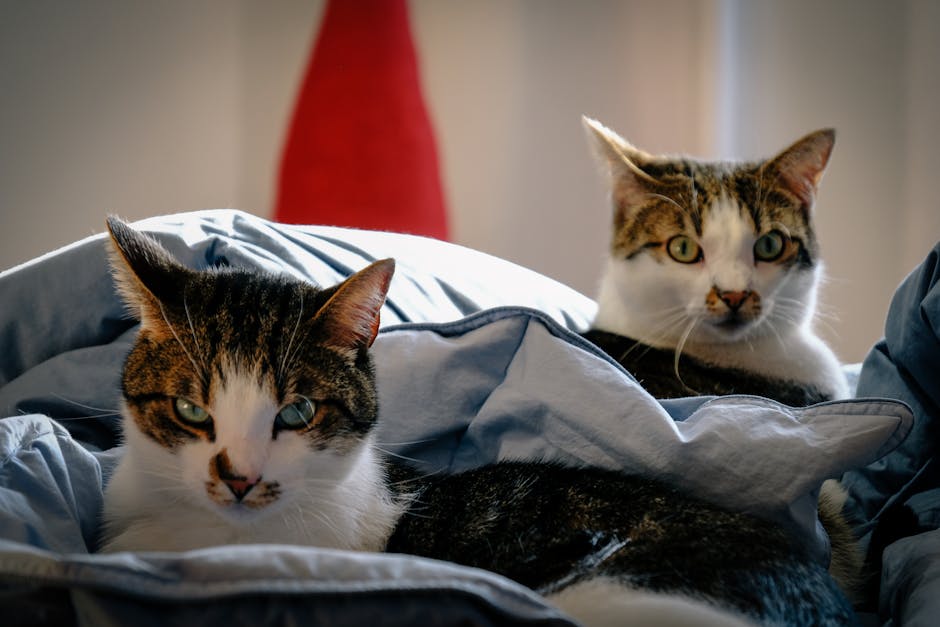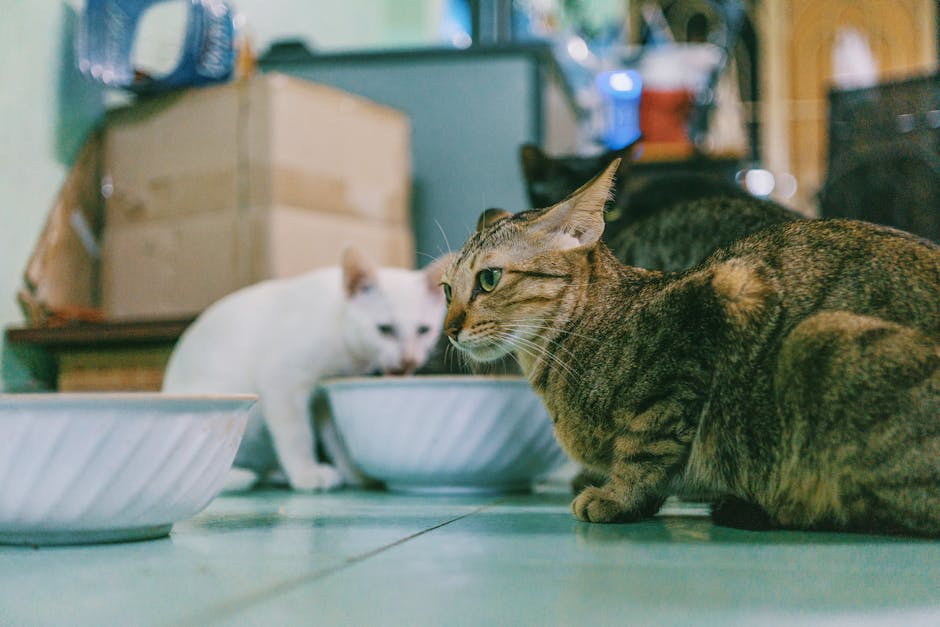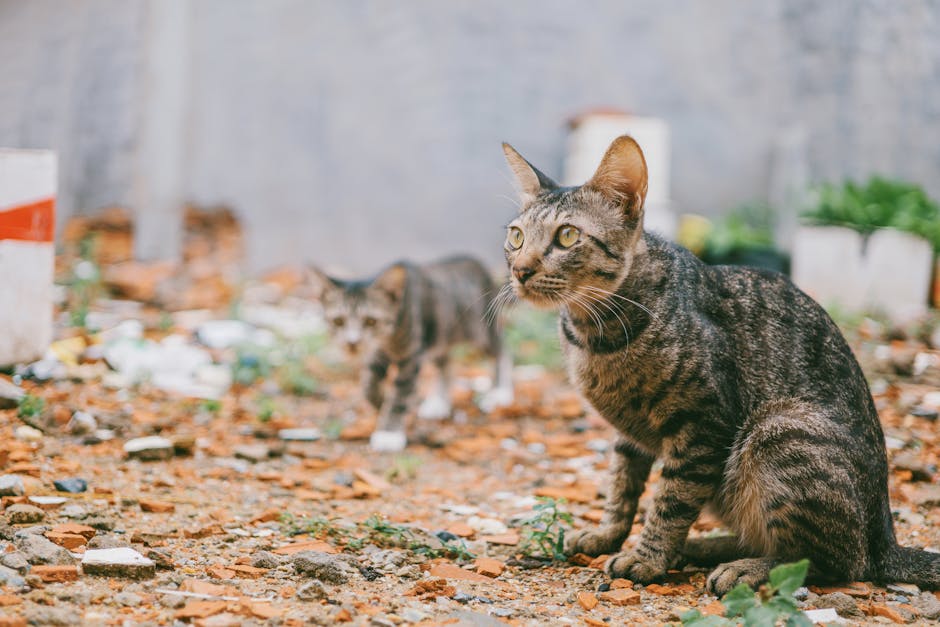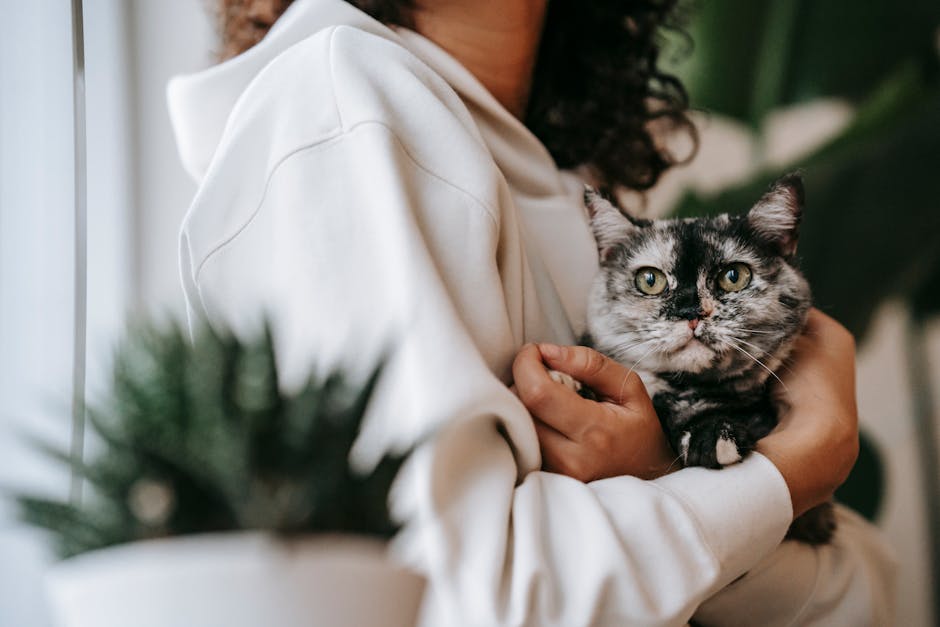Cats are fascinating creatures that display a range of interesting behaviors. One of the most curious of these behaviors is when cats lick their owners. Not only is it an endearing display of affection, but it can also be an indication of other interesting things about our feline friends. In this blog post, we'll explore the reasons why cats lick their owners, the benefits of the behavior, and what it says about our beloved pets' overall health and wellbeing.
The purpose behind cats licking their owners

Cats are known to be curious and independent animals. One of their endearing habits is licking their owners. Have you ever wondered why your feline friend is so keen on licking your skin or hair? The purpose behind cats licking their owners can vary based on different factors.
Firstly, cats lick their owners as a form of communication. The smell of our skin and hair can provide valuable information to our furry friends. Licking releases pheromones and helps cats to identify their owners' scent. This behavior can also be seen as a bonding activity between a cat and its human companion.
Secondly, cats also lick their owners as a sign of affection. Similar to how dogs wag their tails when they are happy to see someone, cats may lick their owners' faces or hands to express their love and appreciation. This can also be a way of seeking attention from their owners.
Lastly, cats may lick their owners as a grooming behavior. In the wild, cats groom each other as a way of maintaining a clean and healthy coat. Licking can help to remove dirt and debris from our skin and hair, as well as spread natural oils to keep our skin moisturized.
In conclusion, while there are different reasons why cats lick their owners, it is generally a sign of love, affection, and bonding. So next time your kitty starts licking your skin or hair, enjoy the moment and appreciate the invaluable bond you share.
The anatomy of a cat's tongue and how it aids in licking

The unique texture of a cat's tongue is what makes their licking behavior so fascinating. A cat's tongue is covered with tiny, backward-facing barbs called papillae. These papillae are made of keratin, which is the same material that makes up our own nails. The barbs on a cat's tongue are meant to help them groom themselves, as they work like a comb to remove dirt and loose fur.
When cats lick their owners, the barbs on their tongue also serve a purpose. They are able to remove loose fur and dirt from their owner's skin and hair, just like they would do for themselves. Additionally, their rough tongues can feel like a massage to some people, as the barbs stimulate the skin and promote blood flow.
Overall, the anatomy of a cat's tongue and the barbs on it are a fascinating part of feline biology. It is no wonder that this behavior has become such a beloved part of the cat-human relationship.
Types of licking behaviors exhibited by cats (grooming, affectionate, etc.)

Cats express their affection in many ways, and licking is one of them. There are different types of licking behaviors exhibited by cats, and each has a different meaning. Grooming lick is a common behavior that cats use to keep themselves clean and well-groomed. Affectionate licking is another behavior, where cats show their love for their owners by licking their skin or hair. Some cats may also lick their owners as a form of comfort or to seek attention. It's important to understand the type of licking behavior exhibited by your cat, as it can indicate their mood or emotional state. While some cats may lick their owners frequently, others may not do it often, and it's important not to force them if they don't enjoy it.
How cats show affection through licking

Cats are known for their grooming habits, and licking is an essential part of their hygiene routine. But did you know that cats also show affection through licking? Your feline friend may lick you as a way of showing their affection towards you. A cat's tongue is rough, which may feel odd, but it is their way of showing you love. When your cat licks you, they're not just grooming you, but also creating a bond with you. In fact, some cats even lick their owner's faces as a way of saying hello. So, the next time your cat licks you, take it as a compliment and a sign of their love for you.
Potential health risks associated with cat licking (excessive grooming, zoonotic diseases, etc.)
Cats are known to be fastidious animals, and it's not uncommon for them to lick their owners as a sign of affection. However, it's important to note that excessive grooming or licking can lead to potential health risks.
For example, over-grooming can result in hair loss and skin irritation for the cat, as well as the transfer of harmful bacteria to their human companion. Additionally, cats can also carry zoonotic diseases, such as ringworm and toxoplasmosis, which can be transmitted through their saliva.
Therefore, while it may feel good to have your furry friend groom you, it's important to establish boundaries and monitor their behavior to ensure that it doesn't become excessive. Pet owners should also practice good hygiene habits and wash their hands thoroughly after interacting with their pets to reduce the risk of contracting any potential diseases.
Tips for owners to prevent excessive licking, such as regular grooming and providing stimulating toys

As much as we love our feline friends, excessive licking can be uncomfortable for pet owners. Fortunately, there are some tips to help prevent this behavior. Regular grooming can help remove any loose fur and reduce the urge to lick excessively. Cats also enjoy playing with stimulating toys that can be used to redirect their attention away from you. Try to engage your cat in playtime before settling down for some quality cuddle time to help channel their energy into play rather than grooming. With these simple tips, you can help reduce the amount of excessive licking your furry friend displays and enjoy a comfortable bonding experience.
How to discourage unwanted licking behaviors

It can be difficult to discourage unwanted licking behaviors in cats, especially if they are used to showing affection in this way. However, there are a few things you can try. One effective approach is to redirect your cat's attention to a more appropriate behavior. When you notice your cat starting to lick you, gently but firmly move their head away and offer them a toy or treat instead. Over time, your cat should start to associate positive reinforcement with playing with toys or receiving treats, rather than licking. Another approach is to discourage licking by making the experience unpleasant for your cat. You can do this by using a motion-activated spray or noise device that startles your cat when they lick you. This will help your cat learn that licking is not a desired behavior and will discourage them from doing it in the future. It's important to remember that this process may take time and patience, but with consistent effort, you can successfully discourage unwanted licking behaviors in your cat.
Common misconceptions about cat licking (such as it being equivalent to a dog's lick)

Many people assume that cat licking is the same as dog licking. However, while dogs often lick their owners as a show of affection, cat licking can mean different things. Cats often groom themselves as a way to regulate their body temperature, but they may also lick their owners as a sign of affection or to mark their territory. It's important to understand the nuances of cat behavior to fully appreciate and interpret their actions.




